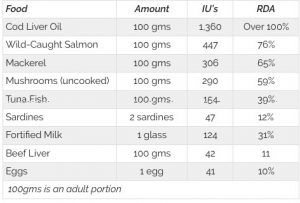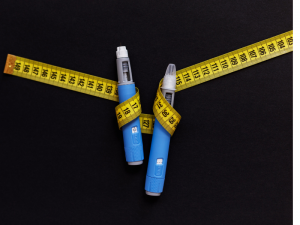The summer solstice marks the longest day of the year and indicates the official start of summer in our city. With an average of 16 hours of daylight guaranteed for the next couple of months, this is the perfect time to be topping-up our sunshine vitamin.
Over half the UK population estimated to be living with a silent vitamin D deficiency due to lack of sun exposure, covering up when outdoors and the daily use of sunscreen. There are simple steps to rebuilding our body’s store of this essential nutrient.
Optimising your Vitamin D levels
The Department of Health guidance suggests that people use a mixture of safe sun exposure, food, and supplements to maintain adequate levels of this essential vitamin.

How to safely top-up Vitamin D from the sun
Exposing the bare skin of the face, hands, and arms for at least 15 – 30 minutes, two-three times a week should be enough for most of the UK population. People with darker skin will need longer to get beneficial level, while those with fair-skinned may require less time in the sun.
With sun safety in mind, sunscreen blocks UV-B radiation and stops the natural skin production of vitamin D. The brief sun exposure required to make Vitamin is not enough to cause skin cancer, but if you have concerns about being in the sun or are photosensitive, applying sunscreen or covering up after the first 15 minutes will keep your skin protected.
How much do we need
- Most adults need around 600 IUs or 10–20 micrograms, of Vitamin D a daily to prevent deficiency.
- Older adults require even more vitamin D and should aim to get at least 800 IU of vitamin D each day.
- A daily vitamin D intake of 1000–4000 IU, or 25–100 micrograms, should be enough to make sure optimal blood levels in most people.
- Infants and babies need around 300 – 400 IUs or 8.5–10 micrograms, of Vitamin D a daily to prevent deficiency.
Vitamin D rich foods
In International units (IU’s) and percentage of recommended dietary allowance (RDA) for children over 8 and adults.



Supplements
Please talk to your doctor or speak to a pharmacist before starting supplements of vitamin D. This is especially important for people taking prescribed medication as vitamin D can interact with some medicines.

Summary
- Vitamin D is a fat-soluble vitamin with an essential role in health.
- Optimal vitamin D levels are linked to better bone health, improved weight control, and enhanced brain function
- It’s primarily obtained through sun exposure and eating oily fish and fortified foods. Eating a few vitamins D rich foods per day can help reduce the risk of deficiency.
- Studies also show a link between Vitamin D and increased immune function and a lower risk of certain types of cancer.
- Vitamin D deficiencies may be associated with muscle weakness, fatigue, and depression.
- Please talk to your doctor or speak to a pharmacist before starting a Vitamin D supplement.
Need more information, read our previous comprehensive article on Vitamin D – Vitamin D, the sunshine vitamin.
SaveSave
SaveSave
SaveSave
SaveSave
SaveSave
SaveSave
SaveSave
SaveSave
SaveSave
SaveSave
SaveSave
SaveSave
SaveSave
SaveSave
SaveSave
SaveSave
SaveSave







